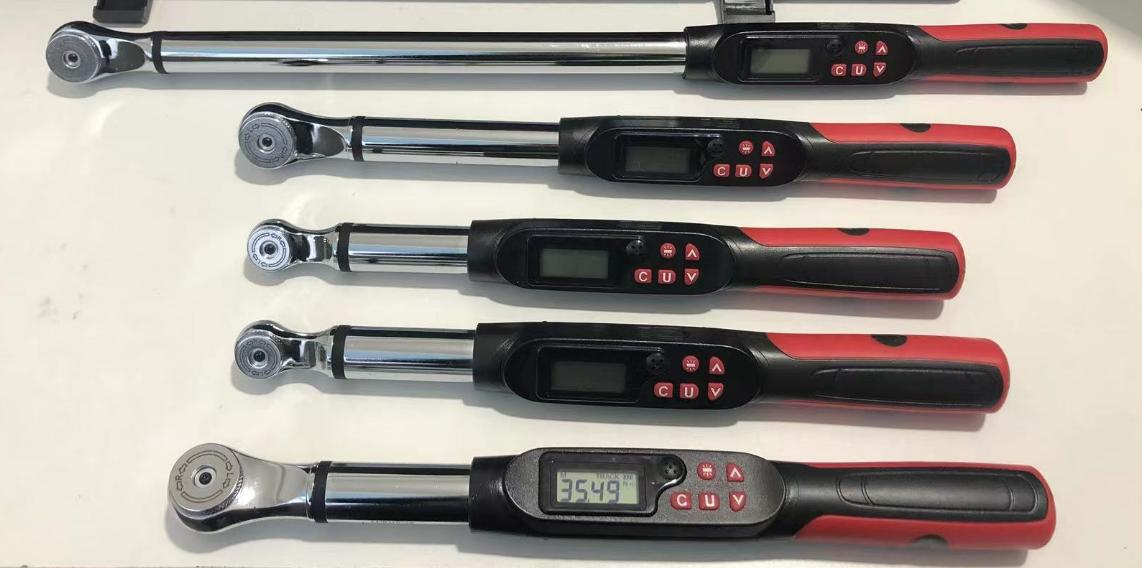Torque Wrench Buying Guide – Which One is Right for Your Repair Tasks?
Time: 2024-11-24
In the world of automotive maintenance, ensuring that components are fastened to the correct specifications is crucial for safety and performance. Torque wrenches are indispensable tools that help achieve the proper tightness when working on various systems, including the cooling system. This guide aims to compare different types of torque wrenches, analyze their applications in everyday repairs, and help you determine which one is best suited for your tasks.

Types of Torque Wrenches
There are several types of torque wrenches available, each designed for specific uses and preferences. Let’s explore the most common types and their applications.
1. Beam Torque Wrench
-
Description: A beam torque wrench features a long, flexible beam and a pointer that shows the torque value on a scale.
-
Usage Scenario: This type is often used in environments where accuracy is essential, such as engine assembly.
- Advantages:
- Simple design and easy to read.
- No need for batteries or calibration.
- Less convenient for tight spaces.
- Torque reading can be affected by the angle of use.
2. Click Torque Wrench
-
Description: A click torque wrench emits a “click” sound when the preset torque is reached, indicating that you should stop applying force.
-
Usage Scenario: Commonly used in automotive applications, including wheel lug nuts and engine components where precise torque settings are critical.
-
Advantages:
- User-friendly and provides an audible signal for accuracy.
- Often provides high precision.
-
Disadvantages:
- Requires periodic calibration to maintain accuracy.
- More expensive than some other types.
3. Digital Torque Wrench
-
Description: A digital torque wrench displays the torque reading on an electronic screen and can often store torque values.
-
Usage Scenario: Ideal for users who require high-tech features, such as in professional automotive shops or racing applications.
-
Advantages:
- Easy-to-read digital display and often includes features like measurement in different units and data storage.
- Provides precise measurements.
-
Disadvantages:
- Requires batteries and can be more costly.
- May need calibration and could be less durable than mechanical wrenches.
4. Torque Angle Gauge
-
Description: While not a traditional torque wrench, this tool measures the angle of rotation after a specified torque has been applied, usually following an initial torque setting.
-
Usage Scenario: Frequently used in applications requiring bolt stretch, such as cylinder head bolts and main bearings.
-
Advantages:
- Provides additional precision in applications where torque alone is not sufficient.
- Useful in various automotive and industrial applications.
-
Disadvantages:
- Requires a torque wrench for initial torque application, making it a supplementary tool.
- Less intuitive for new users.
Selecting the Right Torque Wrench
When selecting a torque wrench for your repair tasks, consider the following factors:
Type of Work: Determine the primary applications you will be using the wrench for, such as general automotive maintenance, high-performance work, or routine repairs.
Space Constraints: If you’re working in tight spaces, a beam or digital wrench may be more suitable due to their compact configurations.
Budget: Consider how much you’re willing to invest in a torque wrench. While precision is essential, there are quality options available at varying price points. Remember that some more expensive models may provide greater accuracy and durability.
Calibration Needs: Understand the calibration requirements of each type. Click and digital wrenches often need regular calibration to maintain accuracy, while beam wrenches are less maintenance-intensive.
Conclusion
Torque wrenches are essential tools for achieving proper tightening of fasteners in automotive repair, including cooling system maintenance. By understanding the different types of torque wrenches available—beam, click, digital, and torque angle gauges—you can make an informed decision on which tool best suits your repair tasks. Correct selection and proper use of a torque wrench will not only enhance the efficiency of your repairs but also ensure the safety and performance of your vehicle.

